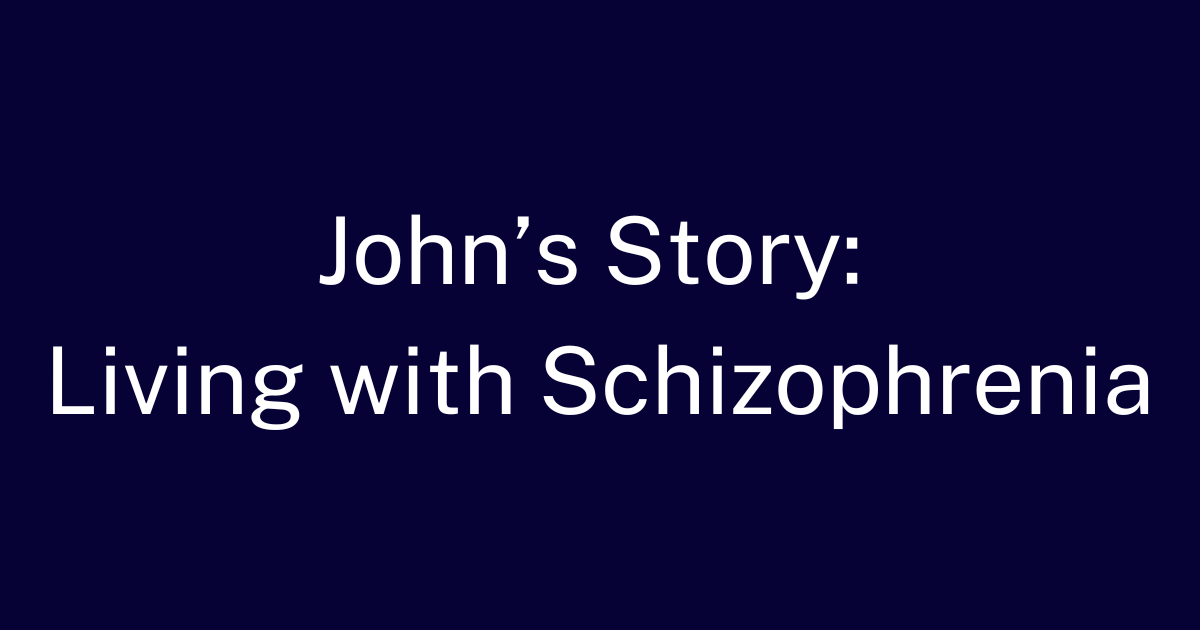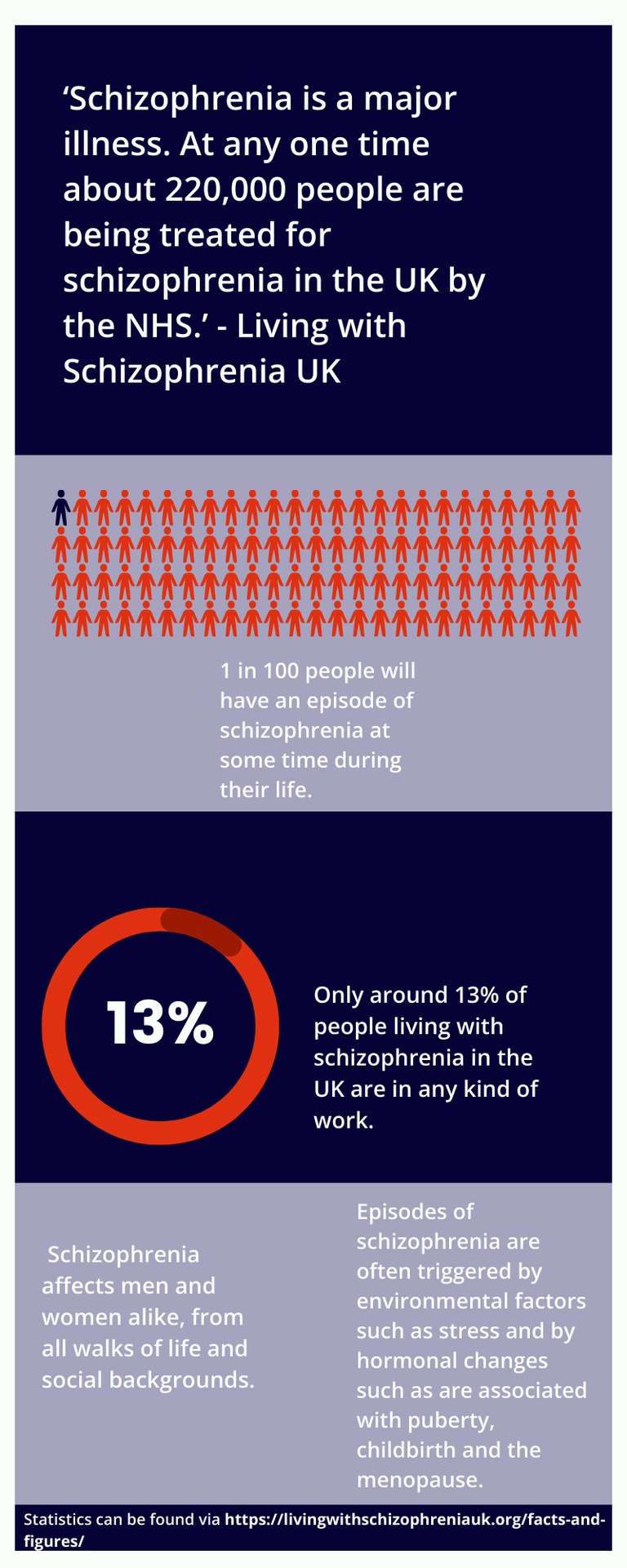
Last month, we published a post across our social media channels asking if individuals with lived experience with a disability or health condition, would like to share their stories with us.
After seeing our post on LinkedIn, John got in touch and was eager to share his experience and more importantly, raise awareness for those in a similar circumstance. John was diagnosed with schizophrenia in 2004, and over the 20 years since his diagnosis he has experienced first-hand the stigma which surrounds the condition, and how this has resulted in him feeling isolated from society.
What is schizophrenia?
The NHS describes schizophrenia as a long-term mental health condition, caused by a range of different psychological symptoms. Schizophrenia is often explained as a type of psychosis. Often a person who has schizophrenia might not be able to always distinguish their thoughts and ideas from reality.
Symptoms can include:
- Hallucinations – hearing or seeing things that do not exist.
- Delusions – beliefs that are not based on reality.
- Muddled thoughts or speech based on hallucinations or delusions.
- Loss of interest in everyday activities.
- Not looking after yourself – not caring about personal hygiene.
- Avoiding other people, including friends and those close to you.
- Feeling disconnected from feelings and emotions.
Despite the negative stigma of schizophrenia, it does not usually cause someone to become violent, nor does it cause someone to have a split personality.
The stigmatisation of schizophrenia, and other mental health conditions, has over time been greatly fuelled by the media. A study carried out by researchers who analysed 41 movies released between 1990 and 2010 for depictions of schizophrenia, found that the majority of characters displayed violent behaviour toward themselves or others. Other research has also found that 75% of depictions of mental illness in popular video games are negative or stereotyped.
The stigma around schizophrenia is something John is very aware of. He told me of a recent news report where the offender had attacked a member of the public, unprovoked, and there was a huge emphasis put on the offender being a ‘violent schizophrenic’.
John spoke about how damaging this kind of negative representation in the media is for others with schizophrenia. He believes that many people automatically think that just because someone has the condition, it must mean they are violent. Which, as the NHS states, is usually not true at all.
Since his diagnosis, John has had support from medical professionals which has enabled him to understand that sometimes his behaviour can be what he terms as ‘dysfunctional’. John says that because of his condition, he struggles with engaging socially with others, meaning that unfortunately, he feels isolated and that there are barriers between himself and society.
However, he is motivated towards integrating himself into society and is engaging with Shaw Trust’s West London Works service. The service supports those with a physical and/or mental health condition to find meaningful employment. John has met with one of the employment specialists and is looking forward to finding a suitable role soon. Service Manager, Richard, said, "We are proud to support and work with individuals like John in finding meaningful employment across West London. Our employment specialists genuinely care about people, understanding each person’s unique skills, needs, and aspirations. By working together, we are committed to making a positive impact and helping individuals build sustainable and fulfilling careers."
It was clear from speaking with John that he feels let down by society and the stigma that sadly still surrounds schizophrenia and other mental health conditions. He says, ‘I would love to see more integration for people in similar circumstances to me.’ From meeting with him, it was evident that he is making positive steps towards hopefully feeling less isolated. Sadly, however, there is still plenty of work to be done to destigmatise mental health conditions as a whole.

Schizophrenia is usually treated with a combination of medicine and therapy which is tailored to each individual. With the right support and treatment, the impact the condition has on daily life can be reduced. It’s important to note that this article has not been written by a healthcare professional and if you are experiencing any of the symptoms above, please speak to your GP.
We hope you have found this article helpful and informative. For more information about the sources used in this article, please see the links below:
- Depiction of mental illness and psychiatry in popular video games over the last 20 years